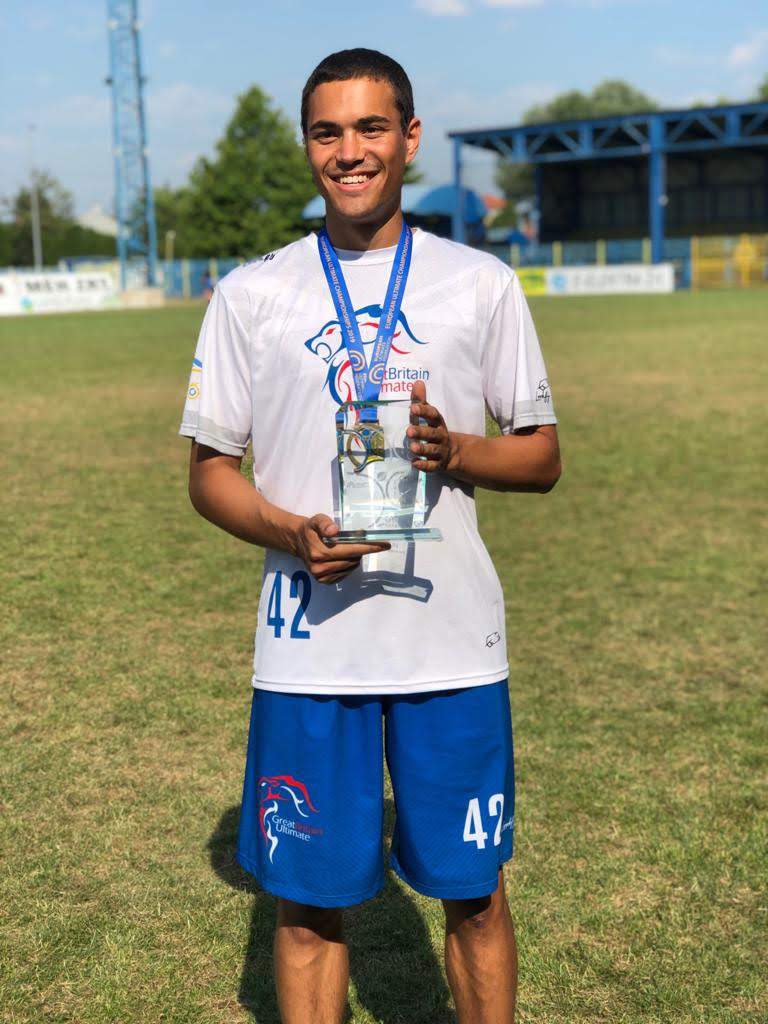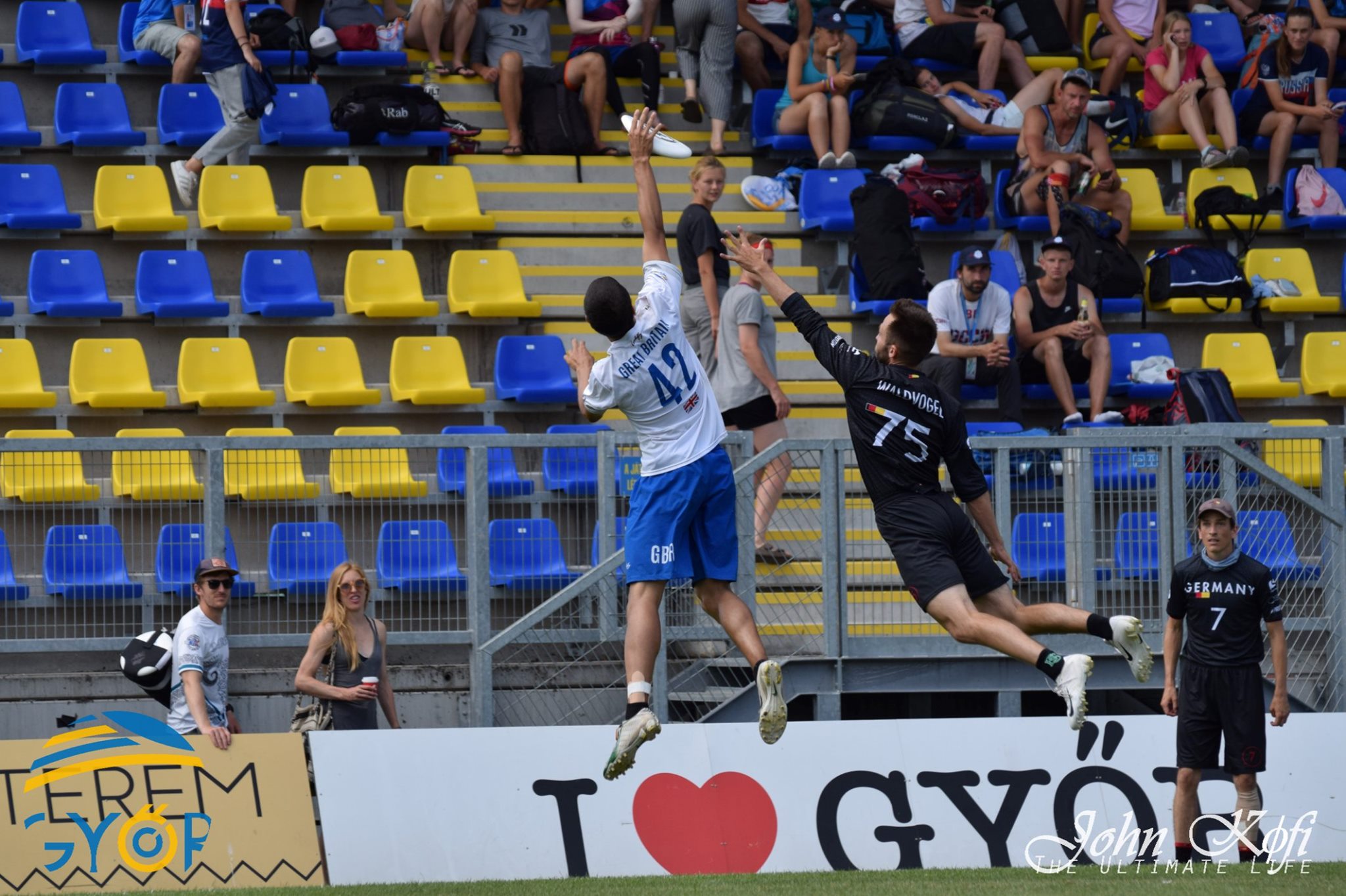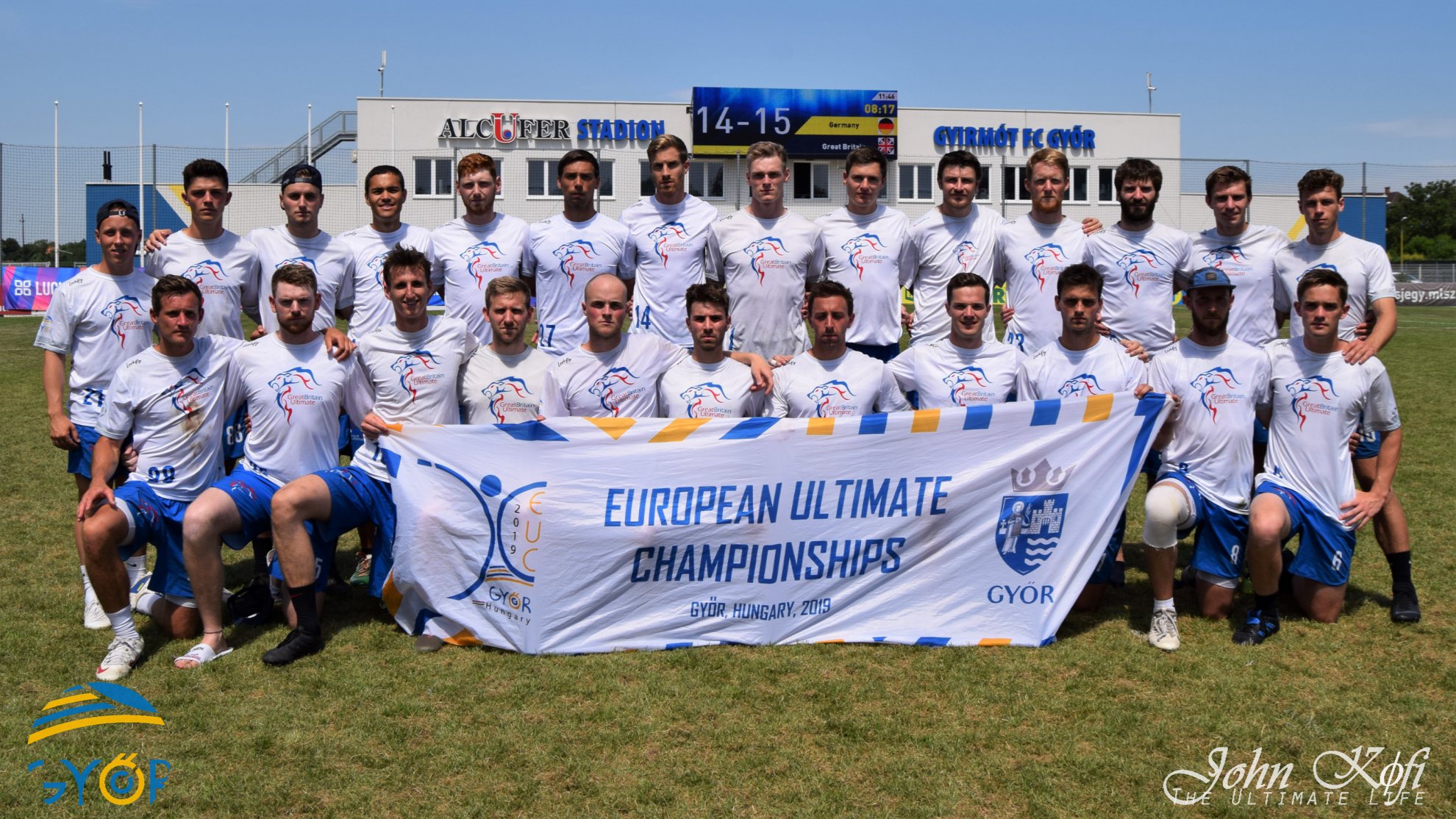September 12, 2019, by Dr. Meghan Gray
Joel wins Ultimate gold
Our students have a huge range of interests outside physics, and often juggle their studies with impressive achievements in other areas. Joel Miller (MSci Physics with Astronomy, 2017) is currently a third-year PhD student in the astronomy group, and recently was part of the winning GB Ultimate Frisbee team at the 2019 European Championships in Hungary. In this guest post, he describes how he manages to keep on top of it all…

I began my ultimate career here at the University of Nottingham back in 2013, the first year of my undergrad (MSci Physics with Astronomy). I have since been part of the university men’s and mixed teams which have won 6 National titles and one silver medal. In addition to playing for the university team, in my second year I joined a local club team East Midlands Open. This year I was selected for the GB men’s team which competed at the European Championships. As part of this process I competed with GB at friendly/warmup tournaments in Bologna and Amsterdam before we headed to Gyor, Hungary for the main event.
GB men came into the tournament as the defending champions having defeated Germany in the 2015 final. We started the week strong, topping both our initial pool and subsequent power pool with victories over Czechia, The Netherlands, Israel, Austria, Russia, France and Denmark. The knockout stages began with rematches against Czechia and Russia in the quarterfinal and semifinal respectively, where we were able to pick up two more convincing wins to advance to the final.
Awaiting us was a rematch of the 2015 final against Germany. Both sides had looked dominant on their respective sides of the bracket, promising an exciting final. Germany scored the first break of the game, but we were able to return the favour in the last point before halftime. Early in the second half we scored our second break to take an 11-9 lead, but Germany immediately responded tying up the game at 11-11. I then scored our third break of the game, giving us a 13-11 lead and putting us 2 points away from the gold medal. We came close to scoring a second consecutive break, but the German defence were able to level up the game once again. With the scores tied at 14-14, the game came down to a sudden death point with GB starting on offence. Despite pressure from the German defence we scored the point and took home the gold medal!


Ultimate is a 7v7, limited-contact, team sport played with a flying disc on a 37x100m pitch including an 18m deep end zone at each end. Players can’t move with the disc and goals are scored by completing a pass into the end zone which you are attacking. Any incomplete pass results in a turnover regardless of which team last touched the disc. Ultimate is played from secondary school to international level, but university level has the most players and is where the vast majority of players begin playing.
Games are played to 15 points (this is adjusted after a time limit if neither team has reached 15). Each time a team scores they throw, “pull”, the disc back to the team which just conceded. At high level the expectation is that the receiving team will score, “hold”, that point without losing possession. If the team starting the point on defence is able to gain possession and score, this is known as a “break”, similar to tennis.
When I’m not playing ultimate I’m studying for an astronomy PhD. My research is focused on using the Lyman-alpha forest to detect galaxy protoclusters. Protoclusters are the ancestors of present day galaxy clusters – the most massive gravitationally bound objects in the universe – and span over 10 million light-years across. Using state-of-the-art hydrodynamical simulations I am looking for signatures which may be left within the light from distant quasars as it passes through these massive structures. As part of my PhD, I also had the opportunity to go observing at the William Herschel Telescope in La Palma where I happened to meet fellow astronomer and future GB ultimate teammate Steve Gillman.
Balancing my academic work with sport can sometimes be a challenge, but it mostly becomes a case of reserving 9-5 for my PhD work while utilising mornings and evenings for my trainings. For the majority of the season my week looked something like this:
- Monday evening gym (HPZ open session 16:45-18:15)
- Tuesday morning throwing practice/training (7:30-8:30)
- Tuesday evening club training (Leicester 19:30-21:30)
- Wednesday afternoon BUCS matches (5 per year)
- Wednesday evening Uni training (20:00-21:00)
- Thursday morning gym (team s&c session 7:45-8:45)
- Thursday evening Uni training (17:00-19:30)
- Friday evening Uni training (21:00-22:30)
- Weekend GB training
I’m now moving into the third year of my PhD and my seventh year at the University of Nottingham, and am looking forward to the new University BUCS season about to start. With regards to my ultimate career, I’ve just secured a 9th place club season finish with East Midlands Open at UK nationals, and I’m working throughout the off-season to secure a spot on the GB Men’s squad for the World Championships in 2020!
No comments yet, fill out a comment to be the first

Leave a Reply